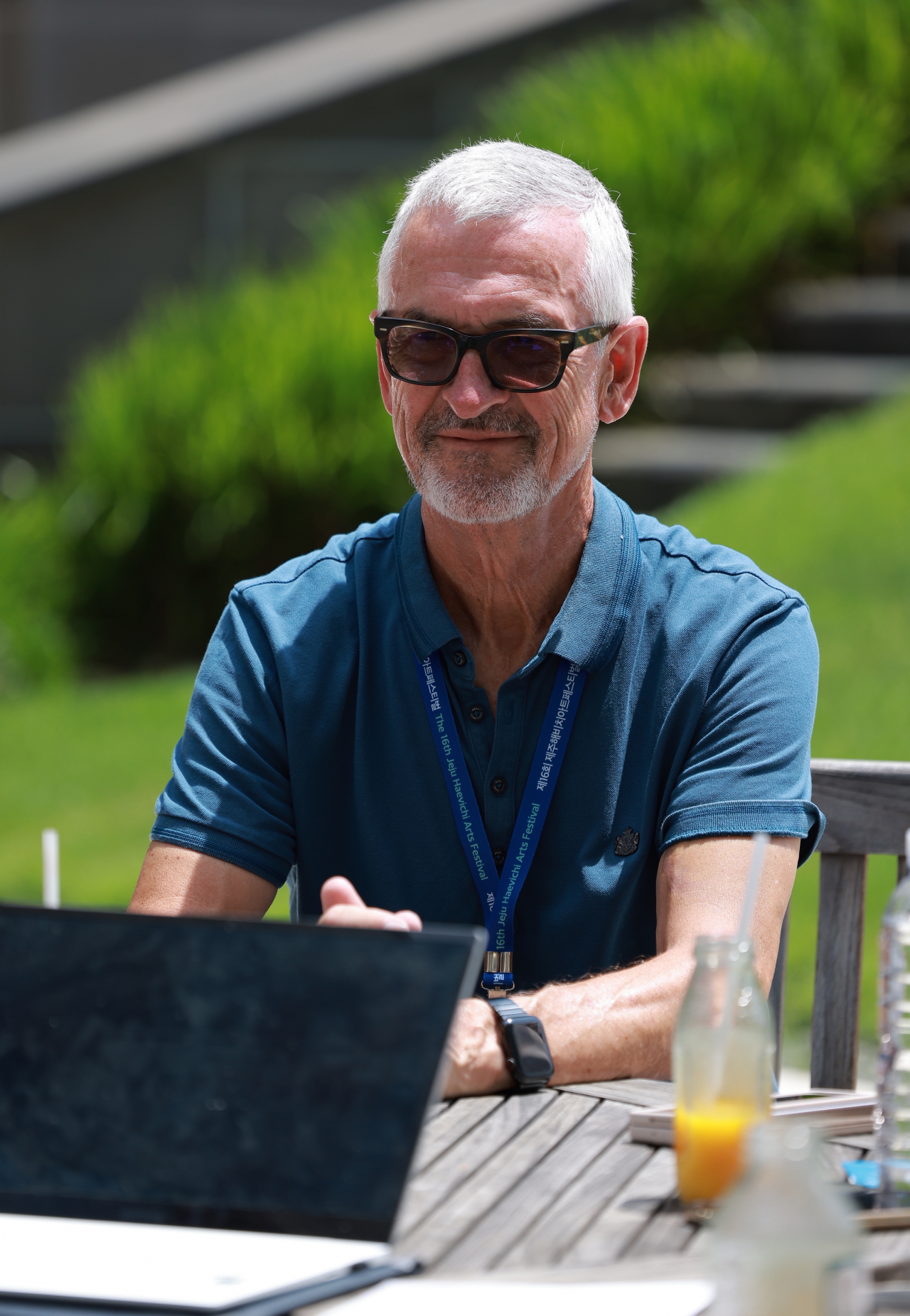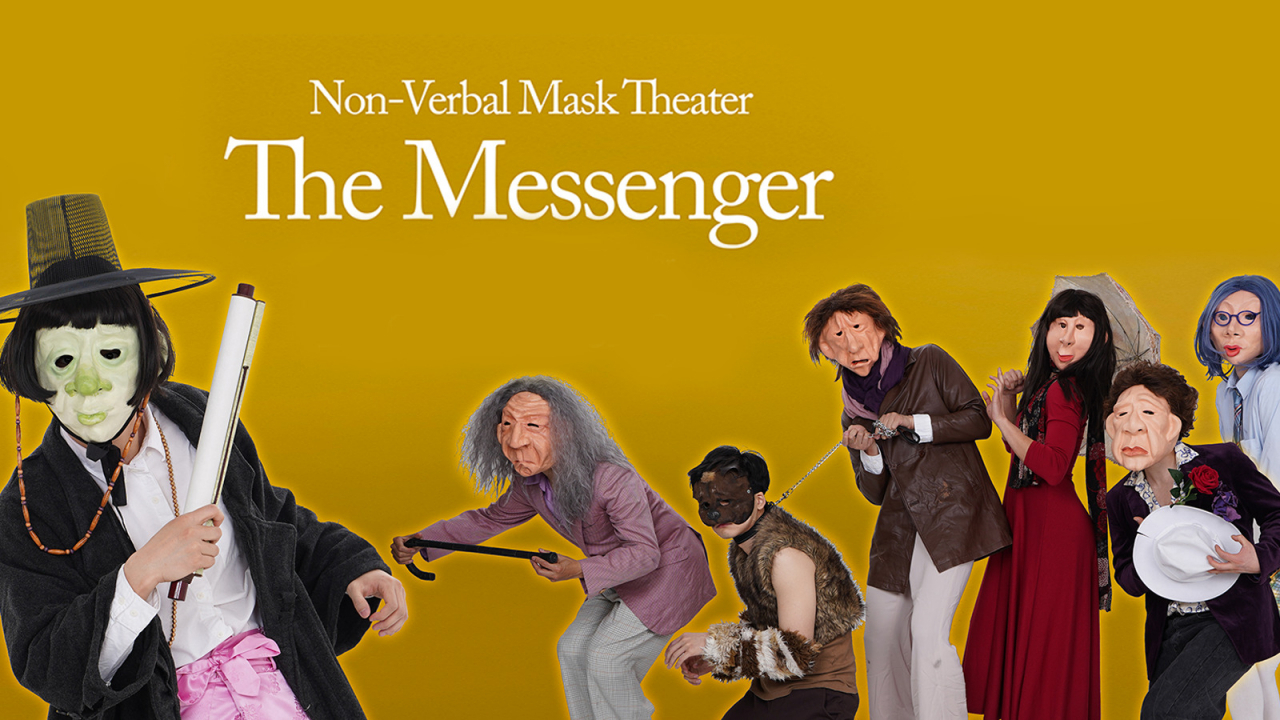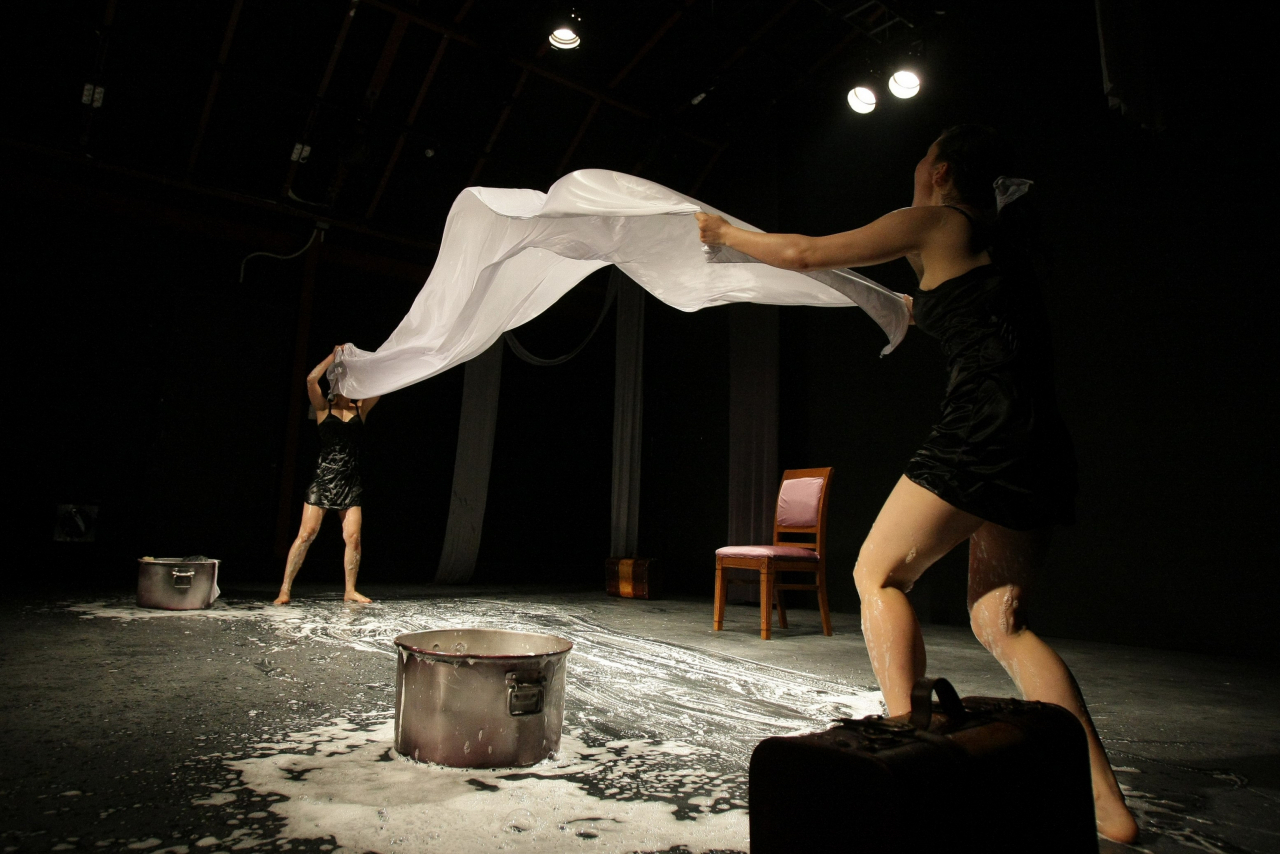 |
William Burdett-Coutts, the founder and director of Assembly, participates in the opening forum of the 16th Jeju Haevichi Arts Festival on Monday evening. (Kocaca) |
In South Korea, the term "fringe" is increasingly being used at various festivals, such as the DIMF Fringe of the Daegu International Musical Festival, the Kocaca Fringe Festival alongside the Jeju Haevichi Arts Festival, the Dynamic Street Fringe of the Busan International Performing Arts Festival, the Seoul Fringe Festival and many more.
The term "fringe" has typically referred to the border or outer edges, and now represents the inclusive and experimental nature of performances that take place on the periphery -- or fringes -- of the main festival following the Edinburgh Festival Fringe that began in 1947.
Although the English term might pose challenges for non-English speakers, it has been adopted as a borrowed term without translation at Korean festivals. This practice, although potentially deviating from the "for everyone" spirit, demonstrates the admiration for the original spirit of the fringe from the Edinburgh Festival Fringe.
 |
William Burdett-Coutts sits for an interview at Jeju Haevichi Hotel and Resorts during the Jeju Haevichi Arts Festival on Jeju Island on Tuesday. (Kocaca) |
William Burdett-Coutts, founder and director of Assembly, one of the major venue operators at the Edinburgh Festival Fringe, has not only observed the Fringe Festival growing both in terms of quantity and quality for more than 40 years, but also has played a guiding role in its development.
Burdett-Coutts, who was honored with the Officer of the Order of the British Empire in the 2021 Queen's Birthday Honors List for his contributions to theater, comedy and the arts, founded Assembly in 1981. It now operates 23 theaters across five locations in Edinburgh.
While the Fringe Festival means many things to many people, he comes back to one word: opportunity.
"I'm a great believer in life that you create your own opportunity and I think the Fringe offers the ability for anybody to get up and make something happen, and then achieve something from doing it," Burdett-Coutts told reporters during an interview on the sidelines of the 16th Jeju Haevichi Arts Festival, hosted by the Korea Culture and Arts Centers Association, on Tuesday. "The notion that you can come and get recognized is probably the most important thing."
Seeking opportunities to be seen, the festival has been attracting a growing number of performances and performers from the world.
In 1999, around 1,200 performances took place, with 2,200 in 2005, and an impressive 3,800 performances during the festival month in 2019. The festival has observed an increasing number of participation from Korea, and even launched “Korea Season" in 2015.
Two of the most familiar examples of finding an opportunity that led to something extraordinary for Korean performers are "Nanta," also known as "Cookin'" outside Korea, and "Jump." The two nonverbal shows became international success stories after being introduced at the festival in 1999 ("Nanta") and 2005 ("Jump").
Among the Korean shows introduced there, "‘Jump’ was probably the one that stood out the most,” Burdett-Coutts said. "It was a very impressive performance and it’s certainly struck the chord with the audience."
That both shows are nonverbal is no coincidence. To be internationally successful, a show has to appeal to broad, diverse audiences that speak different languages and have diverse backgrounds.
"In the ages of Netflix, people have not really got the capacity to sit reading subtitles while listening to the foreign language. So it tends to focus on physical works like magic or dance that are more accessible without a language barrier,” he said.
Some people might lack the patience to sit and read or listen to a foreign language, or even get out of a room to go to a live performance, but Burdett-Coutts said what live performances provide is irreplaceable.
"There's nothing like seeing a live show to really lift the spirits. Being in a space and watching live work can really impact on you individually. Watching something on television tends to be something more peripheral, and it's more distance, whereas when you've got that engagement in a live event, you really could have a sense of life," he said.
This year's Edinburgh Festival Fringe runs from Aug. 4-28. Five Korean productions will be introduced as part of the Korea Season: nonverbal mask play "The Messenger," "Il Wol Dang," "Kokoon," "The Maids" and "Hello, the Hell: Othello."
 |
"The Messenger" (AtoBiz) |
 |
"The Maids" (AtoBiz) |







